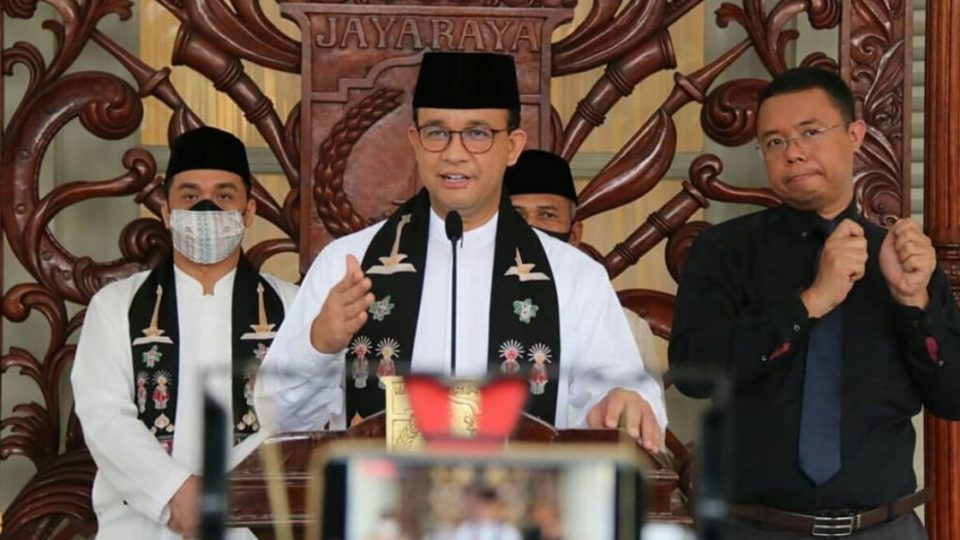A war for public opinion with a heavy religious subtext may be brewing in Indonesia, with the Jakarta chapter of the Indonesian Ulema Council (MUI) throwing their weight behind Governor Anies Baswedan by pledging to raise a “cyber army” to protect his reputation.
Last week, MUI Jakarta expressed its intentions to set up a cyber army to combat those who insult ulemas (clerics) and Muslims online. The statement came after the National Police’s Densus 88 counter-terrorism unit apprehended a commissioner at the national chapter of MUI over suspicion that he aided regional terror group Jemaah Islamiyah (JI).
Then, MUI Jakarta’s statement from October resurfaced over the weekend, in which the group expressed its intention to raise a cyber army for Anies, who they said has unfairly been the victim of character attacks from social media buzzers employed by his political rivals.
MUI Jakarta Chairman Munahar Muchtar yesterday confirmed that the plans to raise a cyber army for Anies and for Muslims in general are still valid, but clarified that the army’s protection extends to all those who want to help better the capital city.
Yet although the Jakarta Provincial Government is appreciative of the plan, it doesn’t seem like it has fully embraced the idea of a cyber army for Anies.
“By all means. All organizations have rights. They can carry out whatever they deem to have good value,” Jakarta Vice Governor Ahmad Riza Patria said.
Meanwhile, the National Awakening Party (PKB) criticized the plan over perceived conflicts of interest, noting that MUI Jakarta is the recipient of an IDR10.6 billion (US$743,606) grant from the Jakarta Provincial Government.
Anies has yet to personally issue a statement about MUI Jakarta’s proposal for a cyber army.
MUI’s national chapter notably issued a fatwa (religious edict) in 2017 forbidding the shaping of public opinion through social media buzzers. Instead of declaring MUI Jakarta’s cyber army to be contradictory to that fatwa, the highest Islamic clerical body in the nation has defended the plan as the army could be used to defend the principles of truth and fairness.
To be fair to Anies, he has not made discriminatory policies as governor of Jakarta. However, it’s difficult to distance him from Islamic groups and organizations, as he enjoyed their support and immense political influence to win the gubernatorial race in 2017.
Though Islamic groups’ political clout has arguably waned since, their support is seen as absolutely crucial for Anies should he decide to run in the 2024 presidential election, especially considering that he’s not affiliated to any political party.




